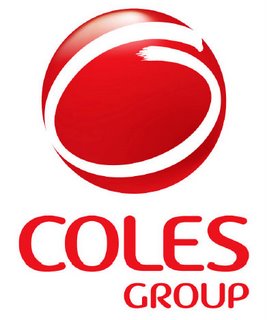
Two weeks after Australian supermarket giant Woolworths launched a fresh new look, the old logo is still being prominently featured in both advertising and the launch of its new credit card.
One of the best ways to kill the momentum of a rebrand is to execute poorly and hesitantly - and Woolworths seems to be on a similar track.
At launch Woolworths promised that the rebrand would take place slowly and steadily and that only a small number of stores would be rebranded with the new look and the rest would come on stream as they joined a refurbishment program or new stores were opened.
However, since the launch Woolworths seems to be exhibiting all the hallmarks of poor brand management.
On August 22, Woolworths announced the launch of a general all purpose, all singing and dancing credit card that can be used for purchases both within and outside Woolworths outlets and at group stores such as Dick Smith, Dan Murphys and Big W.
While a joint venture with global banking group HSBC and Mastercard, the Everyday Moneycard proudly carries the Mastercard mark but also the OLD Woolworths logo as does the Woolworths website, where you sign up for the card and the in-store and other advertising for the card.
And no one seems to have told Woolworths' advertising and media agencies. A similar story was repeated in newspaper and television advertising - the old logo continues to blaze in full colour.
None of this seems to make sense when in the same week Woolworths shrugged off the ACCC report into supermarket competition and announced the fresh new look would, as its head of marketing Luke Dunkerley is quoted as saying, "be instantly recognisable as Woolworths and be associated with the word fresh within a short time".
Here at DIFFUSION we wonder what Woolworths thinks is a "short time" and whether perhaps the flurry of announcements were designed to draw interest away from some of the more adverse findings in ACCC's supermarket competition report released on August 5.
More importantly, it demonstrates that large scale rebranding projects such as this are critical to Woolworths' long term strategy and require far more than a marketing department's control. A concentrated and well executed timetable, that is both realistic and cost effective, would forestall the impression that this is a hamfisted exercise. We wondering whether Woolworths' CEO Michael Luscombe isn't about to repeat some of the disasters from competitor Coles' rebranding efforts, which resulted in successive profit write downs from the botched Bi-Lo merger and John Fletcher's downfall.

